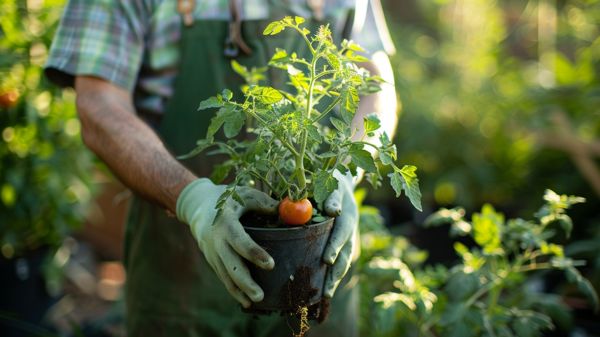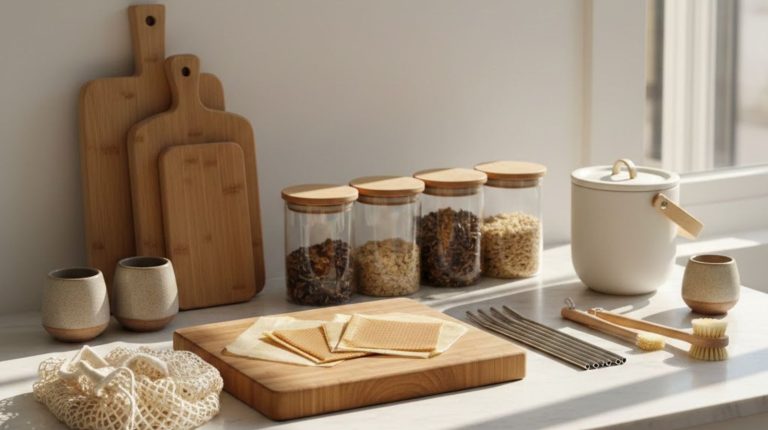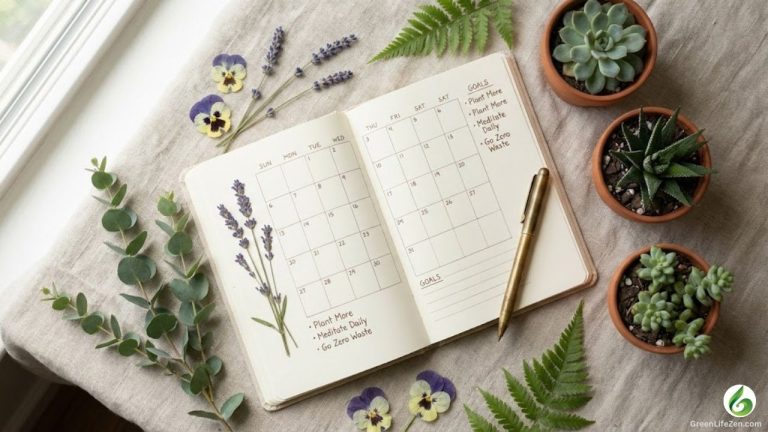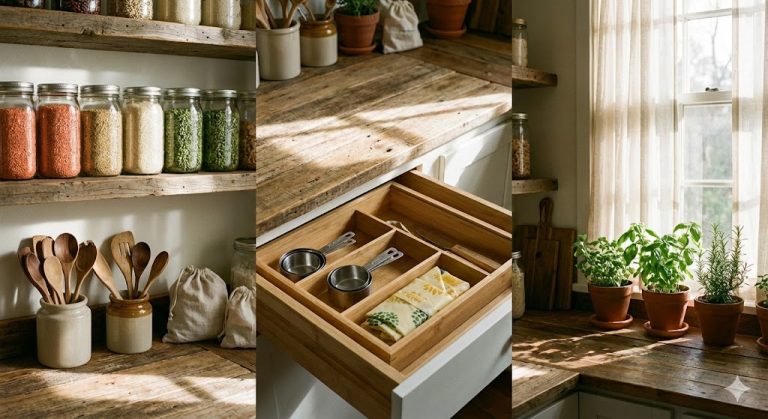As urban and suburban gardeners become increasingly concerned with the environmental impacts of synthetic pesticides, the interest in natural and organic pest prevention for home gardens has surged.
These methods, which include techniques such as companion planting and the use of biological controls like ladybugs or lacewings, not only help in managing pest populations but also enhance the overall ecosystem of a garden.
However, the effectiveness of these strategies can vary considerably depending on several factors, including the specific type of pests and the local environment. One might wonder, then, how to assess and implement these natural solutions effectively to maintain a healthy, productive garden.
Key Takeaways
- Utilize companion planting, such as marigolds to deter aphids and garlic to protect roses, for eco-friendly pest control.
- Apply neem oil, a natural insect repellent that disrupts pest life cycles while preserving beneficial insects.
- Introduce beneficial insects like ladybugs to naturally reduce pest populations in your garden.
- Create physical barriers with floating row covers to protect plants without harming the ecosystem.
- Regularly employ organic composting to enhance soil health, increasing plant resilience against pests.
Understanding Garden Pest Dynamics
In every thriving garden, a variety of pests such as aphids, slugs, beetles, caterpillars, and mites can emerge, often signaling a well-maintained space with nutrient-rich plants.
These organisms, while seemingly detrimental, play a crucial role in the ecological balance, serving as indicators of a garden’s health and liveliness. Recognizing and understanding this dynamic is essential for effective organic pest control.
The introduction of floating row covers can provide a gentle yet effective barrier against these pests while promoting a balanced ecosystem.
Organic gardening emphasizes the importance of maintaining healthy plants as the first line of defense. Soil amendments enhance plant resilience against pests by improving soil health, thereby supporting stronger, more robust plants.
Regular monitoring helps in detecting infestations early, allowing for timely interventions.
Beneficial insects and natural predators, such as ladybugs for aphids and nematodes for slugs, are crucial allies in maintaining ecological balance. Integrating these beneficial organisms can naturally reduce pest populations without the need for harmful chemicals.
Adopting garden pest control methods that respect and enhance the natural ecosystem not only liberates your garden from chemical dependencies but also promotes a sustainable environment where every component, from aphids to Japanese beetles, plays a part in nurturing a healthy garden.
Plant-Based Pest Control Options
Exploring plant-based pest control options provides gardeners with effective, environmentally friendly strategies to protect their crops without resorting to harsh chemicals. By integrating specific plants known for their natural deterrent effects, such as garlic, basil, and mint, garden enthusiasts can embrace a holistic approach to maintaining a healthy garden ecosystem.
Companion planting is a cornerstone of organic gardening that leverages the natural properties of plants to repel unwanted insects while promoting biodiversity. For instance, marigolds emit a scent that discourages greenfly and blackfly, safeguarding neighboring tomatoes.
Similarly, sage’s potent aroma protects carrots by warding off various pests, contributing to a balanced garden environment. Here’s a practical guide to plant-based pest control in table format:
| Companion Plant | Target Pest | Benefits |
|---|---|---|
| Marigolds | Greenfly, Blackfly | Protects tomatoes |
| Sage | Various garden pests | Enhances biodiversity |
| Garlic | Aphids | Shields roses |
| Basil | Beetles, Carrot flies | Guards vegetable plants |
| Mint (in pots) | Multiple pests | Easy to contain |
This method not only preserves the health of your plants but also guarantees a pesticide-free garden, aligning with the ideals of sustainability and ecological care.
Enhancing Pollinator Health
Supporting pollinator health is essential for the sustainability of both home gardens and global ecosystems. Pollinators like bees and butterflies play a significant role in the reproduction of about 75% of flowering plants, which is crucial for maintaining biodiversity. By creating a diverse garden filled with a variety of flowering plants that bloom across different seasons, gardeners can provide a steady food source, enhancing pollinator wellbeing throughout the year.
To further bolster a healthy garden ecosystem, it’s important to eschew synthetic pesticides in favor of natural pest control methods. Such practices safeguard pollinators by reducing harmful exposures while promoting a more resilient garden environment.
Additionally, integrating native plants into your garden design can dramatically increase the visitation of local pollinators, as these plants are often more attuned to the needs and preferences of regional wildlife.
Providing nesting habitats, such as constructing bee hotels or leaving areas of undisturbed soil, also encourages pollinators to reside and reproduce in your garden space. These efforts not only enhance biodiversity but also strengthen the natural dynamics of your garden ecosystem, ensuring a flourishing and productive garden.
Furthermore, adopting sustainable green recycling practices can further enhance the health of your garden by ensuring the use of non-toxic materials and promoting a cleaner environment, which benefits both plants and their pollinators.
Sustainable Gardening Techniques
Gardeners’ shift toward sustainable gardening techniques marks a pivotal step in cultivating healthier, more resilient gardens without the reliance on harmful chemicals. Embracing these methods not only nurtures a thriving ecosystem but also aligns with the desire for a liberating, natural approach to gardening.
Sustainable Gardening Techniques:
- Companion Planting: Plant marigolds with tomatoes or basil with peppers to naturally deter pests. This strategy enhances both plant health and yield by fostering a symbiotic environment where plants mutually benefit from each other’s presence.
- Homemade Remedies: Use garlic spray or hot pepper solutions to combat pests. These remedies provide effective, eco-friendly pest management without introducing toxic substances into your garden.
- Healthy Soil Practices: Engage in composting and apply organic fertilizers to maintain nutrient-rich soil. Healthy soil is foundational in growing robust plants that are inherently more resistant to pest invasions.
- Diverse Plant Life: Cultivate a variety of species, including those that attract beneficial insects. This diversity not only creates a more vibrant and resilient garden but also establishes a natural balance, reducing the need for chemical interventions.
By incorporating practices such as organic composting, gardeners can further enhance soil health and support a sustainable ecosystem.
Through these practices, gardeners can achieve a sustainable, flourishing garden ecosystem, effectively managing natural garden pests while promoting overall garden health.
Learning Resources on Sustainability
Access to a variety of learning resources on sustainability is vital for those seeking to deepen their understanding of environmentally friendly gardening practices.
For enthusiasts keen to explore sustainable gardening, numerous blogs and digital platforms offer insights into air-cleaning plants. These resources not only enhance indoor air quality but also encourage a sustainable living ethos by focusing on the environmental benefits of incorporating such flora into our homes and gardens.
Additionally, community programs and workshops provide hands-on experiences in organic gardening and companion planting. These educational opportunities help gardeners learn how to naturally manage pests and promote ecosystem health without relying on harmful chemicals. By engaging in these programs, individuals can contribute to biodiversity and learn the importance of each plant in their garden.
For those interested in the scientific perspectives of gardening practices, various studies are available that detail the environmental impacts of organic versus chemical methods. Accessing these resources can empower gardeners to make informed decisions that support pollinators and overall garden health.
Furthermore, guides on the role of flowers in supporting pollinators are essential for understanding how to maintain a balanced, thriving garden ecosystem, reinforcing the importance of natural pest solutions. To further enhance garden sustainability, implementing neem oil as a part of routine pest management can greatly reduce the reliance on chemical pesticides while also protecting beneficial soil organisms.
Conclusion
To summarize, adopting natural pest solutions not only preserves the ecological balance but also supports sustainable gardening practices. Techniques such as companion planting, the use of organic repellents like garlic spray, and fostering pollinator diversity, are fundamental in maintaining a healthy garden ecosystem. These methods guarantee a reduction in chemical use, enhance soil fertility, and promote biodiversity. Gardeners are encouraged to embrace these eco-friendly strategies to achieve a thriving and sustainable garden environment.




